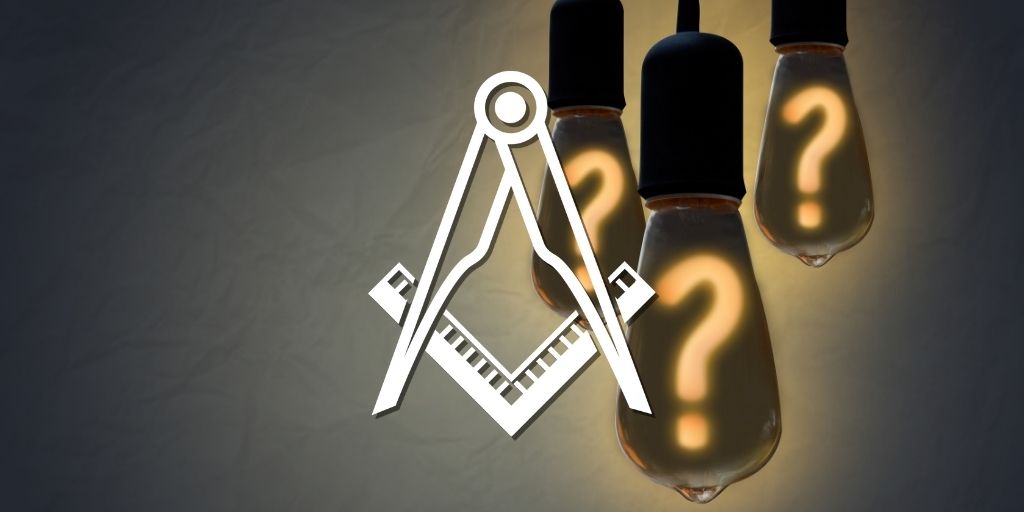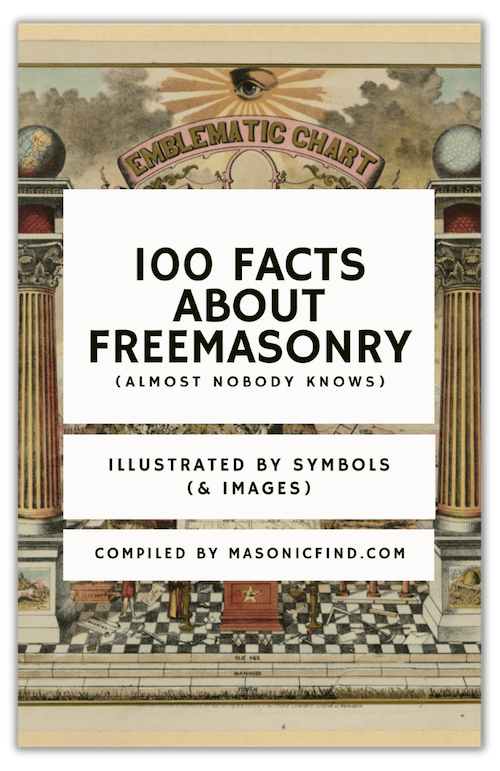Once one submits a petition to become a Freemason, he then goes through the Lodge’s investigation process.
This investigation may consist of background checks, calls to character references, confirmation of employment (if applicable), and calls to Masonic recommenders.
There should also be a visit or interview where members of the Lodge’s investigation committee get to know the petitioner and ask him questions concerning himself and his desires to join.
What questions will be asked when petitioning to join Freemasonry?
I am not aware of any Grand Lodge having standardized questions (though some may do); however, the following are questions that were asked of me, that I have asked, and that I have seen asked of others.
Questions for the Candidate

May I please see some photo ID?
This is an important request. The first step that the Lodge’s investigation committee should take is to ensure that the person they are investigating truly is who he says he is.
In my opinion, no investigation should ever be complete without some sort of photo identification being produced and used to verify the identity of the petitioner.
Background Questions
The investigation committee will want to get to know about the petitioner’s life and background
- Is the petitioner from around here or is he a transplant from another area?
- Where did he go to school? Did he go to university?
- Where does he work (or, if retired, where did he work)?
- How long does (or did) he work there?
- What is (or was) his occupation?
- What does he do with his free time?
How did you hear about our Lodge?
This question can provide a bit of information on the petitioner’s background as well.
Sometimes, the petitioner responds that someone in his family was a Freemason.
Other times, it may be that the petitioner had been curious and asked a Mason friend who helped put him in touch with the Lodge.
It may be that the petitioner was savvy enough to find the Lodge’s social media, website, etc., and decided to find out for himself what it’s about without wading through all the gossip that inundates the internet.
He may even have just happened across the Lodge by happenstance and became curious about it.
What do you know about Freemasonry?
This question is a useful tool for the investigation committee.
It helps them know how many of the petitioner’s ideas of Freemasonry are fact and how many are fiction.
Incorrect ideas can often lead to disappointment down the road, so this is the perfect opportunity for the investigation committee to correct any misconceptions that the petitioner has about the Fraternity.
It may instead be that the petitioner has a very on-the-ball knowledge of Freemasonry and does not need much or any correction; whenever this occurs, it always makes me ecstatic.
Do you believe in a Supreme Being (i.e., God, Deity, Divine Providence, etc.)?
In all regular jurisdictions, the belief in a Supreme Being is essential; no atheist is permitted to join the order.
I believe that this should be among one of the first questions asked to the petitioner during the interview (if not prior).
The petition that he filled out should have a declaration of belief of a Supreme Being on it, which the petitioner should have signed.
Even so, oral confirmation of the petitioner’s belief in a Supreme Being should be obtained by the investigation committee, if nothing else because we live in a world where not everybody reads everything that they sign.
What do you hope to get out of Freemasonry?
Just as a petitioner may have misconceptions concerning the nature of Freemasonry, he may also have misconceptions concerning what constitutes a good reason to join.
I have read some people’s comments on social media claiming that Masonry is for business networking or to get rich.
A few years ago, a young man visited our Lodge and asked us for assistance to get his brother (who was in another country) out of jail; unfortunately for him and his brother, we had to let him know that the Fraternity itself has no bearing on any country’s criminal justice or penal system.
That was his first and last visit to us.
It is evident that many people have very incorrect ideas and expectations of the Masonic fraternity.
The investigation committee will help to correct the petitioner on any incorrect ideas or expectations because we do not want our members to be disappointed down the road with their decisions to join.
What will you contribute to our Lodge?
A Lodge consists, is maintained, and only functions by the contributions of its members.
Moral self-improvement is a characteristic and expectation of Freemasonry; however, moral self-improvement requires sacrificing one’s own time, energy, and resources for the benefit of others.
We already have a lot of members who are proficient ritualists. We already have members who pay their dues.
We already have members who donate to our Masonic charities.
We already have members who take part in Lodge service projects.
We already have members who volunteer their time to help clean the local Masonic Temples or Masonic Halls.
What does the petitioner bring to the proverbial table?
Questions for the Petitioner’s Significant Other (if applicable)

What do you know about Freemasonry?
This was hopefully asked to the petitioner’s significant other at the same time that it was asked to the petitioner himself.
This gives the investigation committee a starting point to clear up any misconceptions (fearful and otherwise) as to what the petitioner will be involved in.
If it has not been started already during the interview, this is also the perfect time to inform the petitioner and his significant other that all of the petitioner’s respective duties to God, country, family, neighbor, and self are prioritized before his duties in Masonry.
Do you have any doubts, concerns, or questions about Freemasonry that we can address?
This also helps the investigation committee to give the petitioner’s significant other the correct idea about what he will be participating in and to remove any doubts or concerns therefore.
Are you comfortable with and do you support [petitioner’s name] becoming a Freemason?
This is perhaps the most important question that can be asked in the interview, even more important, perhaps, than all of the questions asked to the petitioner himself.
Freemasonry should never be the wedge that is driven between the Mason and his significant other, and this question helps the investigation committee know whether this is an issue that should keep the petitioner from being a Mason.

FREE DOWNLOAD: 100 FACTS ABOUT FREEMASONRY (ALMOST NOBODY KNOWS)
Join the 10,000+ Brethren from around the world inside our weekly Masonic newsletter and get our best selling ebook for free (usual value: $20).
Conclusion
These are not the only questions that may be asked during the investigation process, and I am sure that there are other great questions that many Lodges ask their petitioners.
However, these are the main questions that I have experienced (both as a petitioner and as an investigator).
This article was written for MasonicFind.com by WM-Elect Brandon Cole.